Budget: What do businesses want?
- Published
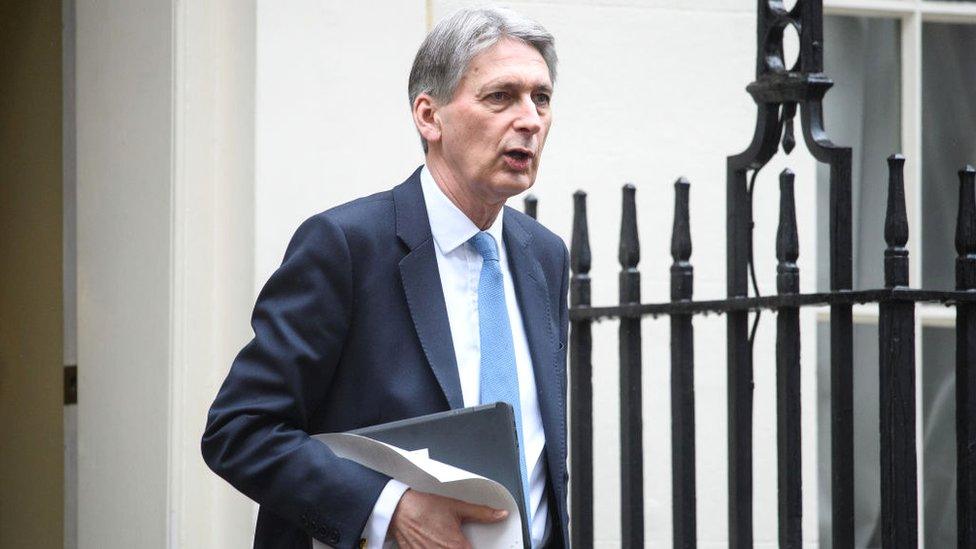
Reform business rates and address Brexit 'uncertainty', say British business leaders
When it comes to Wednesday's Budget, British businesses have drawn up their wish-lists and argued their case with the Chancellor, Philip Hammond.
This Spring two themes have emerged: reforming Britain's business rates and ensuring economic stability as the country prepares to start Brexit negotiations with the European Union.
Here are the highlights of what Britain's business bosses are calling for.

Confederation of British Industry: 'Prioritise stability'
The government must work in partnership with firms to prioritise stability as Britain starts Brexit talks, says the Confederation of British Industry, external.
"By supporting businesses to invest, the government can promote growth at a critical time for the UK economy as we enter into EU exit negotiations," said CBI director-general Carolyn Fairbairn.
The CBI says that as uncertainty about how the UK leaves the EU dampens investment and higher inflation erodes consumer spending growth, "the government must show it is serious about supporting companies to invest, to help our regions and nations prosper".
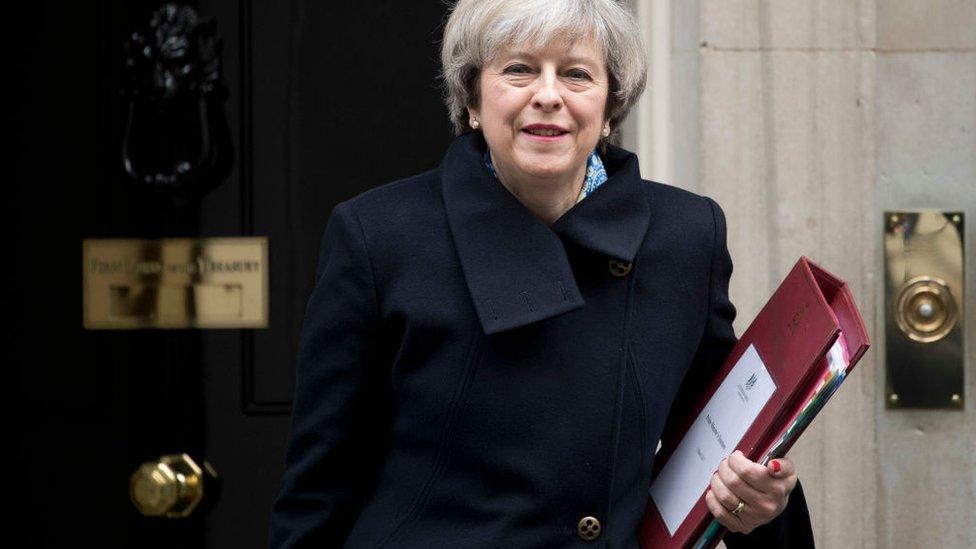
The CBI says Theresa May's government "must show it is serious about supporting companies"
In its Budget submission letter, the group urges the government to make sure it does not add to the mounting burden of costs facing firms for just doing business.
"Prioritising stability will inject further confidence in the economy now, and help boost the country's productivity and prosperity for the future," says CBI chief economist Rain Newton-Smith.

British Chambers of Commerce: Business rates reform
For the BCC, it is "all about business rates". It wants Mr Hammond to deliver "real reform" to the business rates system.
"Despite attempts by successive governments to introduce marginal reforms, the fundamental unfairness of business rates remains," says BCC director-general Dr Adam Marshall, external.

The BCC says the chancellor must deliver 'real reform' of Britain's business rates system
The government should end the "fiscal neutrality principle" in business rates reforms, it says. This means there are winners and losers across the country from reforms but limits the government's scope to bring about fundamental changes, it argues.
The BCC is also calling for further changes on business rates:
Bringing forward the switch in how rates are adjusted for inflation, moving from using RPI to CPI to April 2017 (this change is currently due in April 2020)
Removing all plant and machinery from property valuation for business rates purposes
Ending proposals to restrict the ability of the Valuation Tribunal for England to order changes to business rates liabilities
"Businesses from across the Chamber network of all sizes, sectors and locations, lament the burden of this high up-front cost, which they are forced to pay before making even a penny of profit," says Dr Marshall.

SMMT: 'prioritise technologies'
For the UK's car industry it is vital that the chancellor does nothing to harm the sector's competitiveness, which is "very internationally exposed," says Mike Hawes, chief executive of the Society of Motor Manufacturers and Traders.
He wants a reform of the business rates system to encourage investment in plant and machinery and additional funding for supply chain companies to boost skills levels and productivity.

Measures to boost the uptake of low emission vehicles will also be good news, Mr Hawes says.
There has been speculation ahead of the Budget that Mr Hammond intends to provide more details about his Industrial Strategy and investment plans.
Mr Hawes said: "We must also prioritise technologies of the future such as connected and autonomous vehicles and the digitalisation of manufacturing which could yield significant economic advantages for the UK in years ahead."

Institute of Directors: 'fit for the future'
"There is a risk that Brexit distracts attention from the pressing need to make sure the UK economy is fit for the future," says Institute of Directors chief Stephen Martin, external.

High Street and online businesses should be taxed 'fairly', says the IoD
Mr Hammond should act to "re-energise" the UK business community, says the IoD.
While the government needs to act to help small businesses facing business rate hikes, "we should also look to the future, launching a new Tax Commission to look at what the growth of self-employment and online business mean for the tax system," says Mr Martin.
"The goal must be a much more level playing-field, which treats both High Street and online businesses fairly and adapts to the growth of the 'platform economy', which is leading to an increase in flexible work."
The IoD also wants to see an increase in the Annual Investment Allowance cap to £1m to boost investment by small and medium-sized businesses.
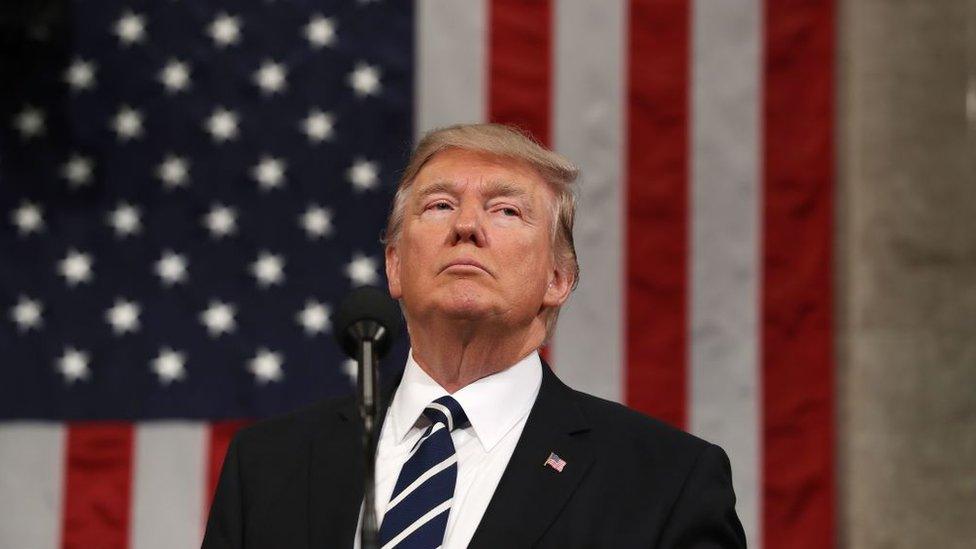
If President Trump cuts US corporate tax rates the UK should follow, it argues
The government should reiterate its manifesto pledge for the UK to have the lowest corporation tax rate in the G7 countries.
This is set to fall to 17% by 2020, but if President Trump cuts US corporation tax to 15% the UK should follow-suit, it says. It also wants to see consultation on a simpler tax system for small businesses.
Mr Hammond should create a 'white-list' for acceptable tax-planning, to separate it from aggressive evasion, so businesses are clear about what kinds of tax planning HMRC will accept.
It wants the government to consult on liberalising investment schemes for start-ups.
The rules for the Enterprise Investment Scheme, Seed Enterprise Investment Scheme and Venture Capital Trusts are too restrictive and unnecessarily complex for entrepreneurs seeking equity funding, says the IoD.

EEF: Boosting R&D
The manufacturers' organisation wants Mr Hammond to maintain his focus on boosting productivity and pressing ahead with infrastructure investment to ensure businesses are ready for "for post-Brexit success", says the EEF.
The government must "enable more research and innovation, skills development and higher levels of investment" - critical for future growth and productivity across British manufacturing.
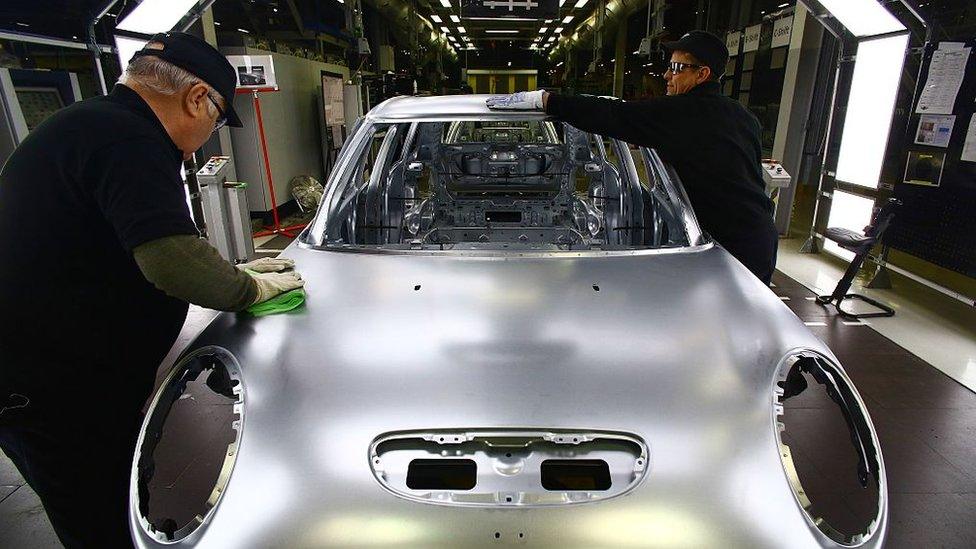
The EEF wants the government to encourage innovation and investment in the manufacturing sector
The chancellor should also act decisively to end the annual bout of controversy about the UK business rates system., it says.
"Action that enables more innovation, more investment and supports better skills and infrastructure in the economy are not optional if the UK is to be ready to make the most of post-Brexit opportunities," says EEF chief economist Lee Hopley.
The EEF is also calling for competitive funding for the government's new institutes of technology, and that the Institute for Apprenticeships should be operational ahead of the new levy being introduced in April.

Federation of Small Businesses: 'be pro-business'
The Federation of Small Businesses , externalis calling for has a "pro-business Budget that boosts jobs and long-term growth".
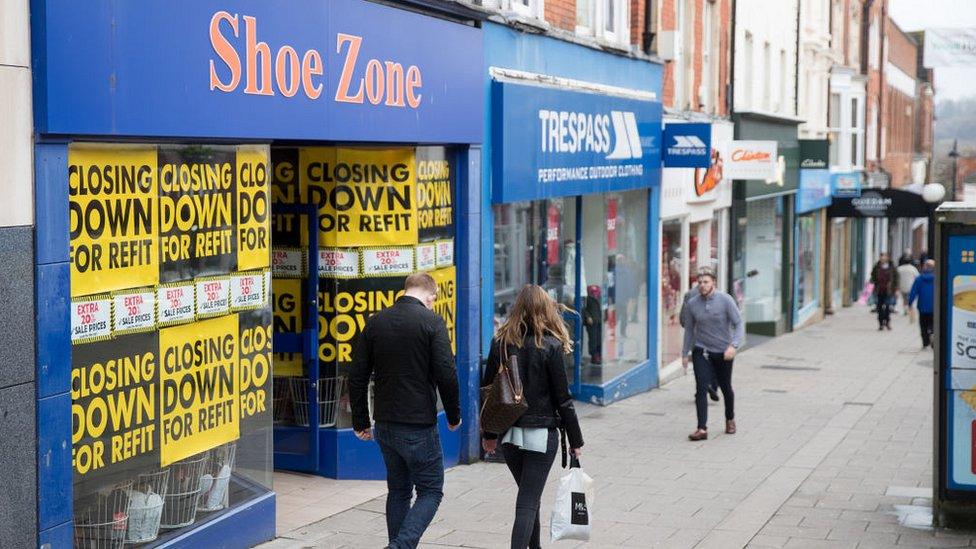
Many retailers on Britain's High Streets are facing a doubling of business rates
The Chancellor should use the Budget to show he backs British businesses to improve job creation and drive productivity - and carry out urgent business rates reform.
"The broken business rates system needs radical change. It's time for the Government to indicate it seeks a sensible, fair system for the 21st century that reflects businesses' ability to pay," says FSB national chairman Mike Cherry.
The Budget is a chance for Mr Hammond to recognise that while "small businesses are the engines of job creation, spiralling labour costs are now threatening their growth ambitions and hiring intentions," he says.

City of London Corporation: 'Certainty and clarity'
The Budget should deliver as much certainty as possible for City firms and preserving the Square Mile's "number one global financial centre position", says the City of London Corporation.
The City also wants to ensure "the fullest possible Single Market access... [and] strong trade links with international partners, maintaining our ability to attract highly-skilled workers," says a Corporation spokesman.
"Certainty and clarity is key."
Follow Tim Bowler on Twitter@timbowlerbbc, external
- Published28 February 2017
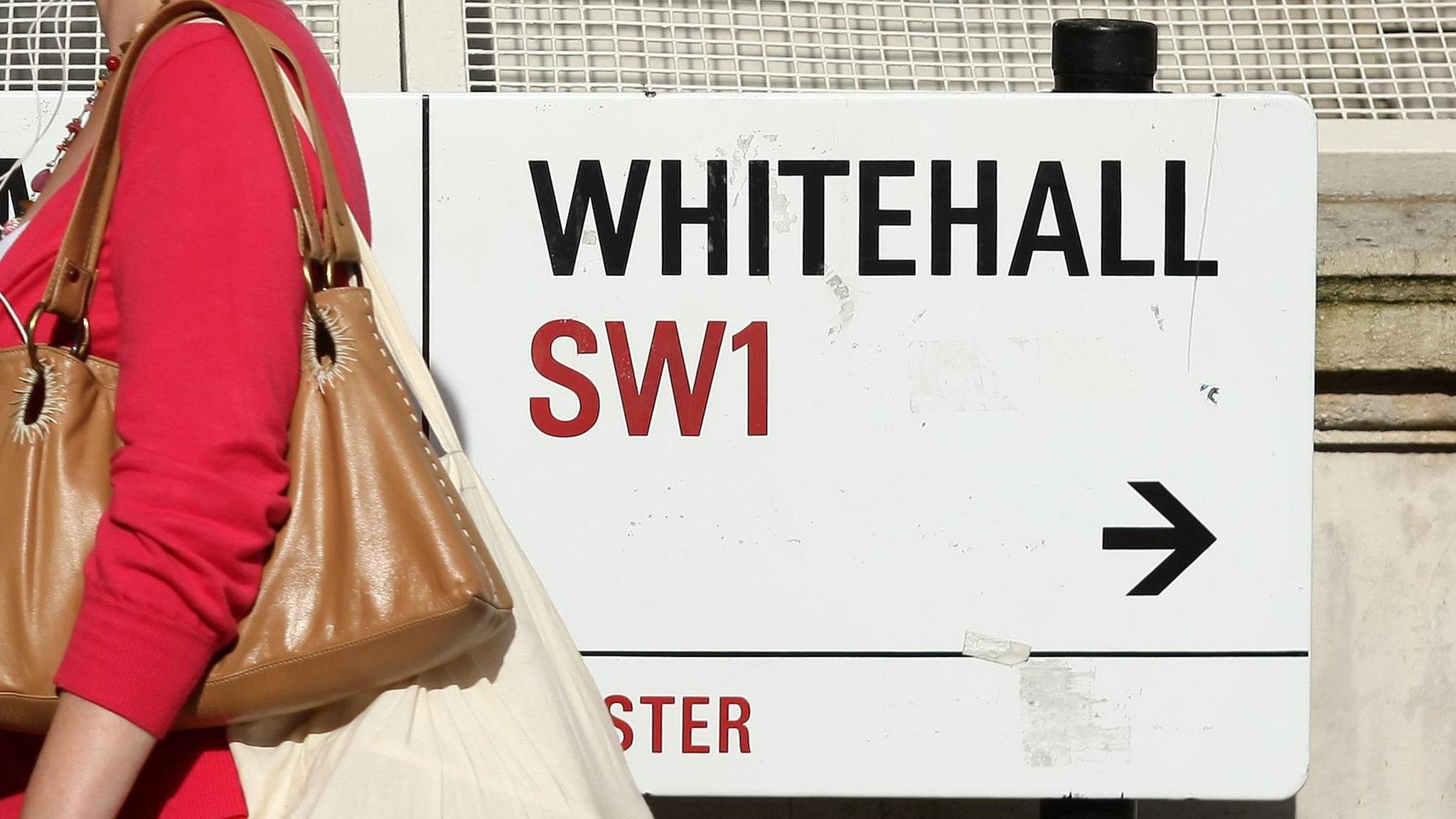
- Published27 February 2017

- Published22 February 2017

- Published21 February 2017
